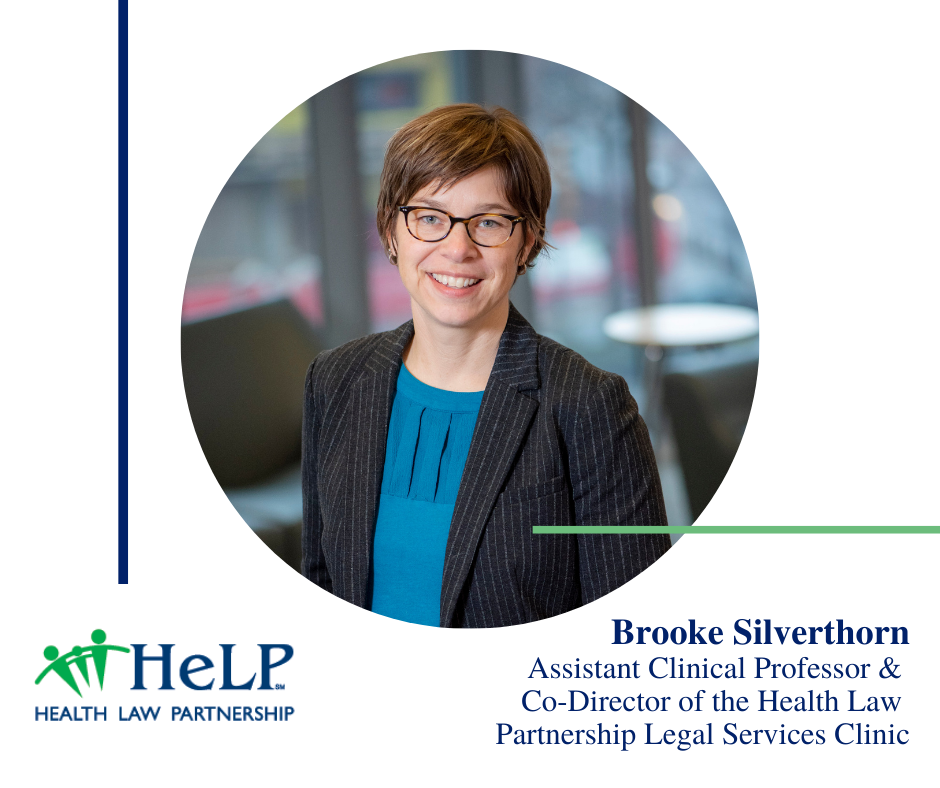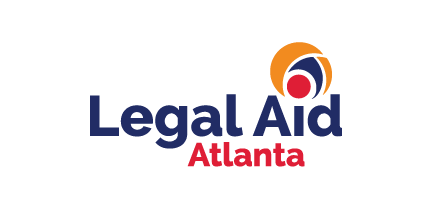Interview with Brooke Silverthorn

We interviewed Brooke Silverthorn, Assistant Clinical Professor and Co-Director of the Health Law Partnership Legal Services Clinic. Brooke and her colleague, Lisa Bliss, lead the charge for the Health Law Partnership at Georgia State College of Law. There, Brooke guides and supervises law students as they represent clients through the Health Law Partnership.
What do you wish more people knew about HeLP?
Brooke: The difference that it can make for families to have lawyers involved in seemingly simple, benign processes.
The great thing about HeLP is that we bring awareness to the health-harming legal needs that children and families experience. And [we also look at] the impact of the social determinants of health on the population of families that we work with.
We mostly work with low-income families — families who wouldn’t necessarily have access to the law if left to their own resources. And it’s amazing to me, as we sort of dive into these cases, how little the average person knows about the very complex process for their cases, especially with SSI disability cases.
Once a lawyer gets involved, it changes the whole complexion of the case. In fact, we had a hearing last semester with some students, and afterward, the judge took the opportunity to talk to the students. And he mentioned to me that he really wishes that more of the claimants had access to our program, or a similar program that allowed them to have legal representation, because it makes such a huge difference from his perspective. It makes the issues really clear in that legal language, which lay people don’t know. So I think that the long answer to your question is the difference that it can make to have lawyers involved in the process.
How do you guide law students in their approach to the work?
Brooke: Some of our students over the years are attracted to our clinic because they’ve had a personal experience with a child with a disability, or an experience from working at Children’s Healthcare. And I had a student who was a parent herself say, “You know, a lot of times when I was talking to the medical professionals, they would tell me these serious things about my child in a very deadpan way, which sort of caught me off guard.”
So what we stress to the students is: this might just be another day in the life of a professional lawyer or a medical professional who works in this field, but it’s so impactful for the families. It’s not just another day in their lives, it is their lives. So we really spend a lot of time with students talking about professionalism, and the part of lawyering that I think doesn’t get discussed enough in law school: compassion and empathy. And what it means to clients to have somebody who’s fighting for them, who is listening to them, who is allowing their voice to be heard and their experience to be heard in the process.
One thing I like to say to students is, “We aren’t the voice for them. They have their own voices. We just help them to be able to bring their voice to the decision makers.” Which is such an important and powerful role.
What’s the most rewarding part of your work with HeLP?
Brooke: One of the great things about HeLP is we’re helping individual clients, but we’re also looking at systemic issues. Through the larger Health Law Partnership, there are opportunities to change the laws and change the way systems function.
I also really appreciate the interprofessional learning aspect of HeLP. At our clinic, we have law students. But we also have medical students and residents from both Emory and Morehouse join us. Starting this year, over the summer, we worked with the school of social work at Georgia State to have a masters of social work student who will be joining us for the year. So the great thing is the ability to work with students who are sort of framing how they’re going to practice as they move into their professional life. And soft of normalizing this idea that we can work together and share our individual expertise to really help clients and patients in a more holistic way.
The more we normalize the collaboration between different professions — law, medicine, social work, public health — the better and more effective we’re all going to be, both in our individual roles and also as a collective.
